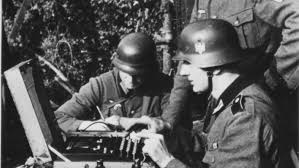The Bank of England has circulated new £50 banknotes featuring Alan Turing.
New £50 notes memorializing groundbreaking British computer scientist and World War II hero Alan Turing went into circulation on Wednesday, the date of what would have been his 109th birthday. Turing is widely known as the “father of computer science and artificial intelligence” and is the first gay man to be featured on a British banknote.
This news has been welcomed by those part of the LGBTQ+ community and those who have celebrated his work.
Sarah John, who is the Bank of England’s chief cashier, said to NBC News that she was delighted that he was able to feature on their new £50 banknote and how “he was a brilliant scientist whose thinking still shapes our lives today.”
Who is Alan Turing?
The English mathematical, computer scientist, logician, cryptanalyst, philosopher and theoretical biologist was born on 23rd June 1912 in Maida Vale, London. In 1934 he graduated from the University of Cambridge, and two years later, he produced “On Computable Numbers” at the age of 24. The paper is seen to be one of the most famous theoretical papers in the history of computing. After he wrote this paper, Turing joined the British government’s wartime operation at the start of World War Two.
During his time in government, he designed a code-breaking machine known as “Bombe” or the Enigma machine. This machine transferred valuable military intelligence to the Allied Forces and processed coded messages, which help shortened World War Two and saved lives. Professor Jack Copeland estimated that the Enigma machine shorted the war in Europe by more than two years and saved over 14 million lives. By the end of the war, Turing was made an Officer of the Most Excellent Order of the British Empire, an honour given by the royal family to those who have contributed to sciences, arts and public service.
“What we really don’t realize is how this moment and Turing’s vision changed the entire world. Before this, literally nobody in the world had imagined that a single machine could apply countless strings of abstract symbols. Now we know them as programs,”
David Leslie of the Alan Turing Institute.
He was also part of developing the earlier versions of computers, the first being at the National Physical Laboratory and then at the University of Manchester. Turing wrote a paper on the chemical basis of morphogenesis, which is the biological process that causes a cell, tissue or organism to develop its shape and predict oscillating chemical reactions.

Yet, despite his achievements during his career, he was never fully recognised for his work.
During the 1950s, thousands of gay men and those suspected of being gay were imprisoned as it was a criminal offence to be gay or have same-sex relations. In 1952, Turing was prosecuted for indecency over his relationship with a man and was offered the choice to either be imprisoned or be chemically castrated. He chose to take a hormonal treatment that suppressed his libido. Due to his criminal record, he couldn’t work for governmental intelligence, and he was disgraced and disenfranchised.
On 8th June 1954, he died of suicide after taking cyanide at the age of 41.
“I’m delighted that Alan Turing features on our new £50 banknote. He was a brilliant scientist whose thinking still shapes our lives today. However, his many contributions to society were still not enough to spare him the appalling treatment to which he was subjected simply because he was gay. By placing him on this new £50, we are celebrating his life and his achievements, of which we should all be very proud.”
Sarah John, Bank of England’s chief cashier
Importance of Turing’s £50 Note
Turing’s appearance on the £50 note is a massive milestone for the LGBTQ+ community and those fighting for his legacy to be recognised. The Bank of England’s decision is a way to reverse the once disgraced individual into a widely celebrated person. Over the last few years, Turing’s legacy and achievements have started to be fully recognised. In 2009, Gordon Brown publicly apologised for Turing’s “utterly unfair” treatment, and four years later, the Queen granted the wartime hero a royal pardon.
The Imitation Game was released in 2014, based on a biography of Alan Turing and his achievements, which Andrew Hodges wrote in 1983. Many buildings have also been named after Turing’s name, including the computer room at King’s College, Cambridge, a computer laboratory at the University of Washington and a lecture room at the Slovak University of Technology in Bratislava, Slovakia. The Bank of England’s decision to include Turing on their £50 note adds to these steps in fully recognising what Turing brought to this country and why he should be widely celebrated rather than condemned for who he is.
This may not be the last time we hear Turing being recognised in some form of way, as the mathematician once said that “this is only a foretaste of what is to come, and only the shadow of what is going to be.”


